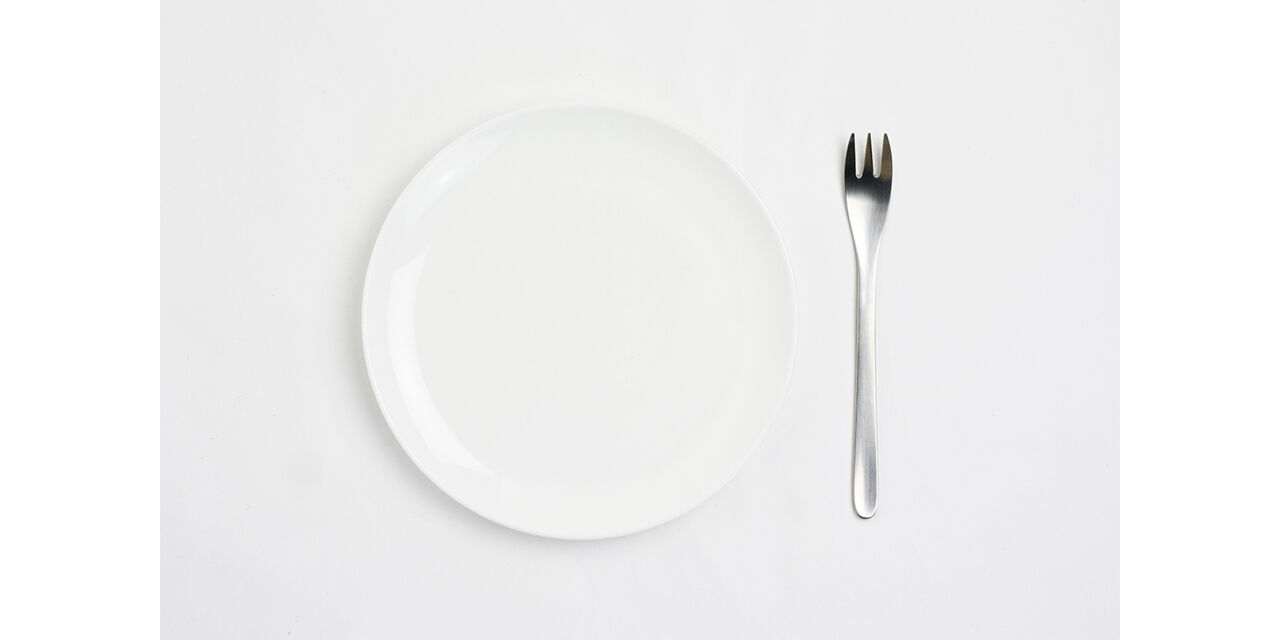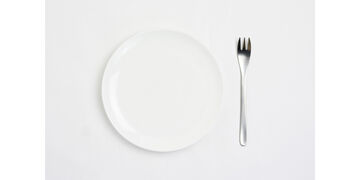Yanagi Sori
Cake Fork
Made in
Japan
New
Large Item
Low in Stock
Sold Out
This product is not available in your market
2012000400061
2012000400061
Sori Yanagi's Stainless Steel Cutlery Series
A cutlery designed by one of Japan's most famous product designers, Sori Yanagi.
Sori Yanagi's production started with making model prototypes before drawing sketches or diagrams. Such models were used to test usability and took about 2 to 3 years to reach the final form after repeated improvements. A diagram is drawn only when something satisfactory is created.
After the series are created in this way, their shapes and forms are modified according to their purpose and have curves that fit your mouth. The surface is given a matte finish to hide scratches.

Stainless Steel Products that Use about 50% Recycled Materials
"Sori Yanagi Design Series" is sold by Sato Shoji Corporation, who asked Sori Yanagi to design the products that started as the Stainless Steel Cutlery and were released in 1974. It won the Good Design Award in the same year. Afterward, it continued designing and manufacturing various kitchenware and tableware that are mainly based on stainless steel products, such as the Stainless Steel Kettle and Stainless Steel Milk Pan.

Stainless Steel features superb anti-corrosive capabilities and can be used for a long time. Its quality as a material does not degrade much, allowing reusability, even when being discarded. Discarded materials (scrap from the stamping process and defective products) incurred during the manufacturing process at the factory are also collected and melted in the electric furnace to be reused as materials.
A cutlery designed by one of Japan's most famous product designers, Sori Yanagi.
Sori Yanagi's production started with making model prototypes before drawing sketches or diagrams. Such models were used to test usability and took about 2 to 3 years to reach the final form after repeated improvements. A diagram is drawn only when something satisfactory is created.
After the series are created in this way, their shapes and forms are modified according to their purpose and have curves that fit your mouth. The surface is given a matte finish to hide scratches.

Stainless Steel Products that Use about 50% Recycled Materials
"Sori Yanagi Design Series" is sold by Sato Shoji Corporation, who asked Sori Yanagi to design the products that started as the Stainless Steel Cutlery and were released in 1974. It won the Good Design Award in the same year. Afterward, it continued designing and manufacturing various kitchenware and tableware that are mainly based on stainless steel products, such as the Stainless Steel Kettle and Stainless Steel Milk Pan.

Stainless Steel features superb anti-corrosive capabilities and can be used for a long time. Its quality as a material does not degrade much, allowing reusability, even when being discarded. Discarded materials (scrap from the stamping process and defective products) incurred during the manufacturing process at the factory are also collected and melted in the electric furnace to be reused as materials.
Dimensions: width 18mm x depth 7mm x height 150mm
Material: stainless steel
Material: stainless steel
Produced by: Sato Shoji Corporation
Designing and manufacturing everyday household goods including tableware, kitchenware, interior items since 1955. "Sori Yanagi Design Series" started in 1974 with the sales of stainless steel cutlery. It has created a variety of cooking ware including kettles and pots.
Design: Sori Yanagi
Born in 1915 in Tokyo as the eldest son of Soetsu Yanagi, the leader of mingei (folk craft). After graduating from the Department of Painting at Tokyo University of the Arts, he worked at Junzo Sakakura Architectural Office and later founded the Yanagi Design Institute in 1952. It aimed to create "beautiful forms to be used," which is characterized by creating diagrams after a model is created and a prototype of the product is used. It is responsible for designing various objects, including the flame holder and torch of the Tokyo Olympics, stadium seats, furniture, tableware, bicycles, bridges.
Designing and manufacturing everyday household goods including tableware, kitchenware, interior items since 1955. "Sori Yanagi Design Series" started in 1974 with the sales of stainless steel cutlery. It has created a variety of cooking ware including kettles and pots.
Design: Sori Yanagi
Born in 1915 in Tokyo as the eldest son of Soetsu Yanagi, the leader of mingei (folk craft). After graduating from the Department of Painting at Tokyo University of the Arts, he worked at Junzo Sakakura Architectural Office and later founded the Yanagi Design Institute in 1952. It aimed to create "beautiful forms to be used," which is characterized by creating diagrams after a model is created and a prototype of the product is used. It is responsible for designing various objects, including the flame holder and torch of the Tokyo Olympics, stadium seats, furniture, tableware, bicycles, bridges.
・Wash with lukewarm water and detergent after use and wipe thoroughly.
・Refrain from using hard sponges or brushes. They may leave scratches on the surfaces.
・By separately storing cutlery by their types in drawers, you can prevent or reduce the items from scratches.
・Refrain from using hard sponges or brushes. They may leave scratches on the surfaces.
・By separately storing cutlery by their types in drawers, you can prevent or reduce the items from scratches.
Sori Yanagi's Stainless Steel Cutlery Series
A cutlery designed by one of Japan's most famous product designers, Sori Yanagi.
Sori Yanagi's production started with making model prototypes before drawing sketches or diagrams. Such models were used to test usability and took about 2 to 3 years to reach the final form after repeated improvements. A diagram is drawn only when something satisfactory is created.
After the series are created in this way, their shapes and forms are modified according to their purpose and have curves that fit your mouth. The surface is given a matte finish to hide scratches.

Stainless Steel Products that Use about 50% Recycled Materials
"Sori Yanagi Design Series" is sold by Sato Shoji Corporation, who asked Sori Yanagi to design the products that started as the Stainless Steel Cutlery and were released in 1974. It won the Good Design Award in the same year. Afterward, it continued designing and manufacturing various kitchenware and tableware that are mainly based on stainless steel products, such as the Stainless Steel Kettle and Stainless Steel Milk Pan.

Stainless Steel features superb anti-corrosive capabilities and can be used for a long time. Its quality as a material does not degrade much, allowing reusability, even when being discarded. Discarded materials (scrap from the stamping process and defective products) incurred during the manufacturing process at the factory are also collected and melted in the electric furnace to be reused as materials.
A cutlery designed by one of Japan's most famous product designers, Sori Yanagi.
Sori Yanagi's production started with making model prototypes before drawing sketches or diagrams. Such models were used to test usability and took about 2 to 3 years to reach the final form after repeated improvements. A diagram is drawn only when something satisfactory is created.
After the series are created in this way, their shapes and forms are modified according to their purpose and have curves that fit your mouth. The surface is given a matte finish to hide scratches.

Stainless Steel Products that Use about 50% Recycled Materials
"Sori Yanagi Design Series" is sold by Sato Shoji Corporation, who asked Sori Yanagi to design the products that started as the Stainless Steel Cutlery and were released in 1974. It won the Good Design Award in the same year. Afterward, it continued designing and manufacturing various kitchenware and tableware that are mainly based on stainless steel products, such as the Stainless Steel Kettle and Stainless Steel Milk Pan.

Stainless Steel features superb anti-corrosive capabilities and can be used for a long time. Its quality as a material does not degrade much, allowing reusability, even when being discarded. Discarded materials (scrap from the stamping process and defective products) incurred during the manufacturing process at the factory are also collected and melted in the electric furnace to be reused as materials.
Dimensions: width 18mm x depth 7mm x height 150mm
Material: stainless steel
Material: stainless steel
Produced by: Sato Shoji Corporation
Designing and manufacturing everyday household goods including tableware, kitchenware, interior items since 1955. "Sori Yanagi Design Series" started in 1974 with the sales of stainless steel cutlery. It has created a variety of cooking ware including kettles and pots.
Design: Sori Yanagi
Born in 1915 in Tokyo as the eldest son of Soetsu Yanagi, the leader of mingei (folk craft). After graduating from the Department of Painting at Tokyo University of the Arts, he worked at Junzo Sakakura Architectural Office and later founded the Yanagi Design Institute in 1952. It aimed to create "beautiful forms to be used," which is characterized by creating diagrams after a model is created and a prototype of the product is used. It is responsible for designing various objects, including the flame holder and torch of the Tokyo Olympics, stadium seats, furniture, tableware, bicycles, bridges.
Designing and manufacturing everyday household goods including tableware, kitchenware, interior items since 1955. "Sori Yanagi Design Series" started in 1974 with the sales of stainless steel cutlery. It has created a variety of cooking ware including kettles and pots.
Design: Sori Yanagi
Born in 1915 in Tokyo as the eldest son of Soetsu Yanagi, the leader of mingei (folk craft). After graduating from the Department of Painting at Tokyo University of the Arts, he worked at Junzo Sakakura Architectural Office and later founded the Yanagi Design Institute in 1952. It aimed to create "beautiful forms to be used," which is characterized by creating diagrams after a model is created and a prototype of the product is used. It is responsible for designing various objects, including the flame holder and torch of the Tokyo Olympics, stadium seats, furniture, tableware, bicycles, bridges.
・Wash with lukewarm water and detergent after use and wipe thoroughly.
・Refrain from using hard sponges or brushes. They may leave scratches on the surfaces.
・By separately storing cutlery by their types in drawers, you can prevent or reduce the items from scratches.
・Refrain from using hard sponges or brushes. They may leave scratches on the surfaces.
・By separately storing cutlery by their types in drawers, you can prevent or reduce the items from scratches.



